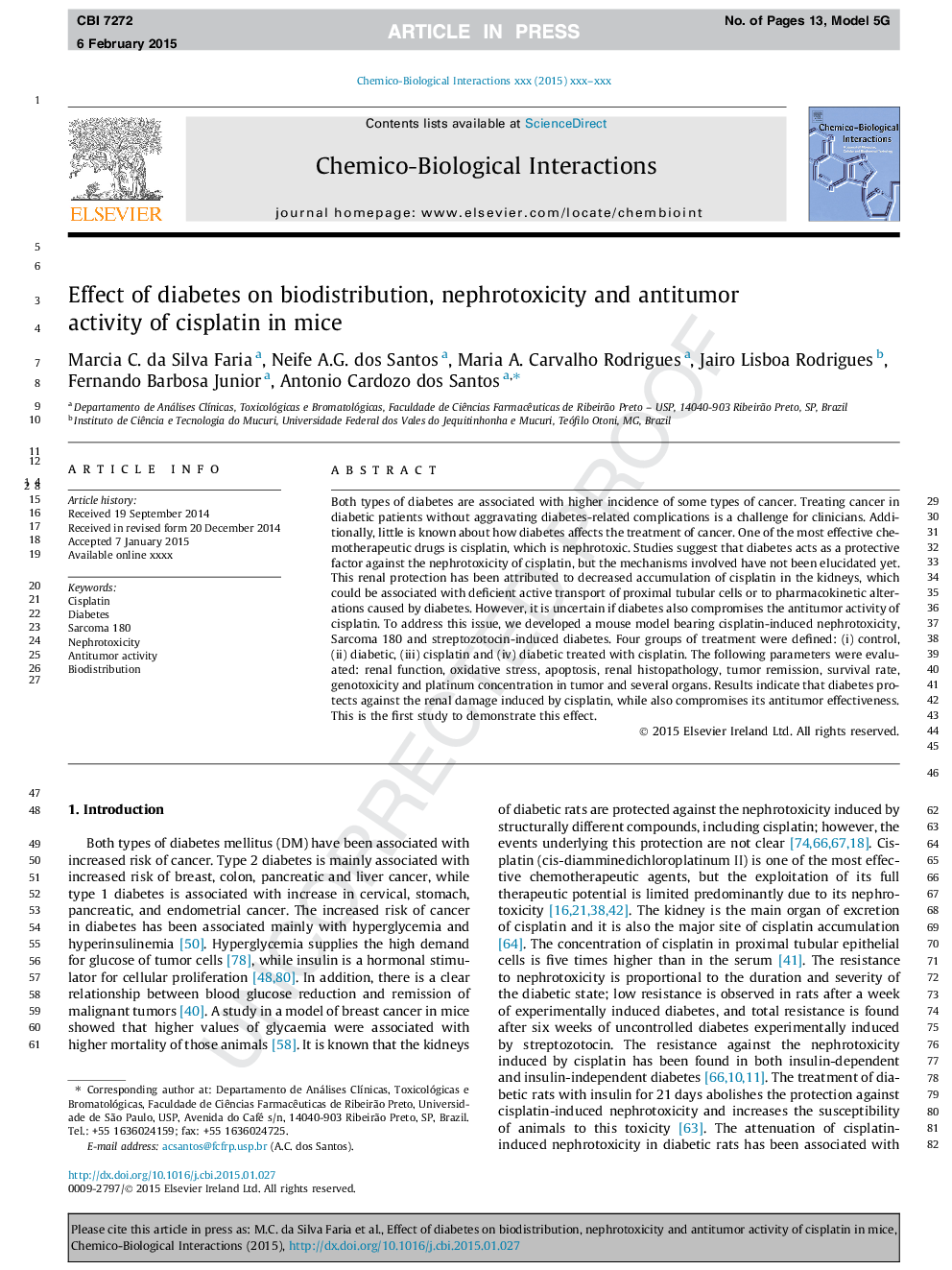| Article ID | Journal | Published Year | Pages | File Type |
|---|---|---|---|---|
| 5847935 | Chemico-Biological Interactions | 2015 | 13 Pages |
Abstract
Both types of diabetes are associated with higher incidence of some types of cancer. Treating cancer in diabetic patients without aggravating diabetes-related complications is a challenge for clinicians. Additionally, little is known about how diabetes affects the treatment of cancer. One of the most effective chemotherapeutic drugs is cisplatin, which is nephrotoxic. Studies suggest that diabetes acts as a protective factor against the nephrotoxicity of cisplatin, but the mechanisms involved have not been elucidated yet. This renal protection has been attributed to decreased accumulation of cisplatin in the kidneys, which could be associated with deficient active transport of proximal tubular cells or to pharmacokinetic alterations caused by diabetes. However, it is uncertain if diabetes also compromises the antitumor activity of cisplatin. To address this issue, we developed a mouse model bearing cisplatin-induced nephrotoxicity, Sarcoma 180 and streptozotocin-induced diabetes. Four groups of treatment were defined: (i) control, (ii) diabetic, (iii) cisplatin and (iv) diabetic treated with cisplatin. The following parameters were evaluated: renal function, oxidative stress, apoptosis, renal histopathology, tumor remission, survival rate, genotoxicity and platinum concentration in tumor and several organs. Results indicate that diabetes protects against the renal damage induced by cisplatin, while also compromises its antitumor effectiveness. This is the first study to demonstrate this effect.
Related Topics
Life Sciences
Environmental Science
Health, Toxicology and Mutagenesis
Authors
Marcia C. da Silva Faria, Neife A.G. dos Santos, Maria A. Carvalho Rodrigues, Jairo Lisboa Rodrigues, Fernando Barbosa Junior, Antonio Cardozo dos Santos,
